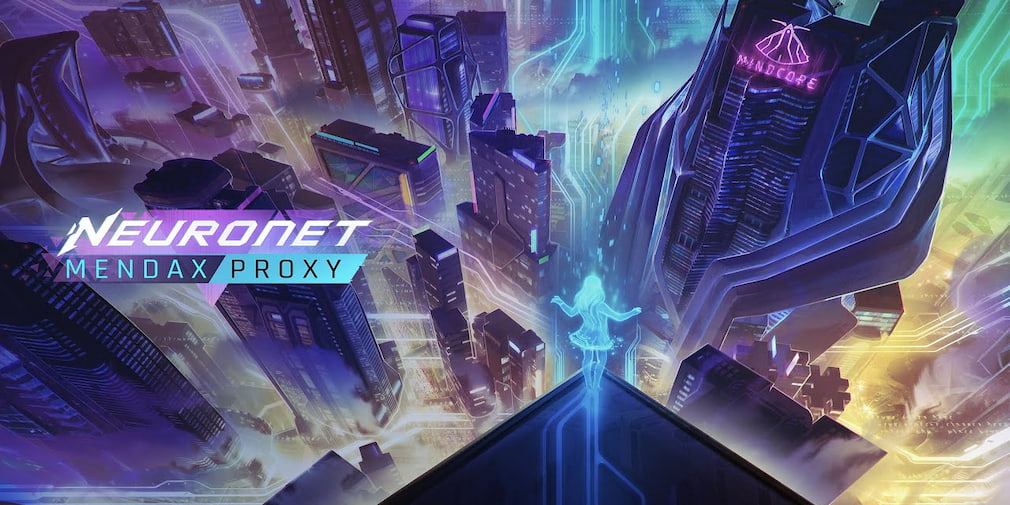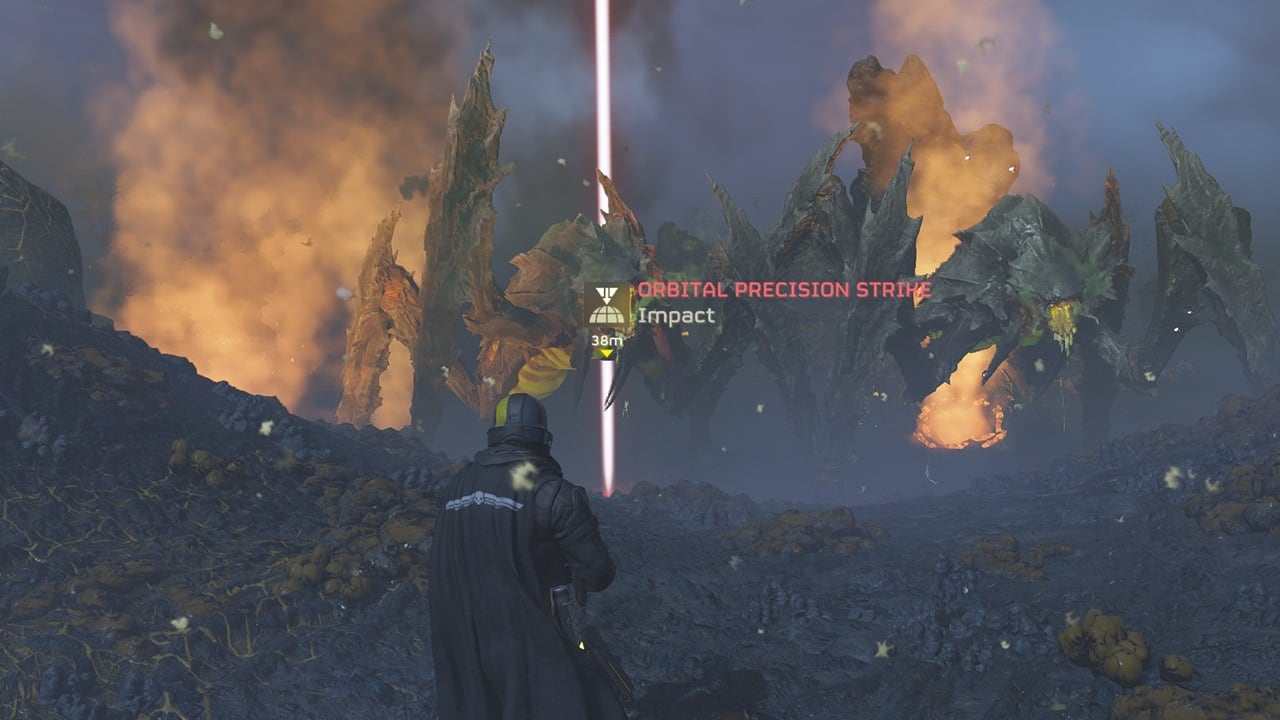- We handed Neuronet: Mendax Proxy over to our App Army
- Our readers had some mixed thoughts on this choice-based narrative adventure
- Some enjoyed the replayability while others think there are better options in the genre
Neuronet: Mendax Proxy, which Iwan recently reviewed, is a choice-based narrative adventure that draws inspiration from Reigns. However, rather than taking place in a medieval realm, it’s set in a cyberpunk future, where you can usually expect the morals of the day to be thrown out the window. We handed the game over to our App Army to see how they go on.
Here’s what they said:
Jojó Reis
Narrative, where you must balance the needs and desires of your many citizens to determine the fate of a post-cyberpunk city on the verge of a new digital age. Now the problem begins for you who do not understand English, the game has no other language and as the game is based on choices you will be very lost for not being able to understand the texts. You need to answer some questions and the understanding of the texts is mandatory!
The game has a very simple interface where you should only click on the options that will appear on the screen. If you understand English well, maybe you will still have fun with this game, otherwise, I do not recommend buying this game. The game has a cool look, great voices, and very well-reproduced sounds. But really for a game of choice, there is no way to prioritize only one language.
Jason Rosner
NeuroNet: Mendax Proxy is a cyberpunk narrative game where you shape the story around you based on the choices you make that have real consequences on your adventure. You play the role of “Arc”, the newly designed AI that’s used as an interface between the city’s augmented reality network and its people. The big moral question the narrative tries to tackle is how we can lose parts of our own humanity when we become too dependent on the technology we create.
NeuroNet does a great job of making a movie-type setting with its outstanding graphics, from the numerous characters you meet, along with the varied art of its environments. The excellent voice acting really keeps you invested in the story. I feel as though I’ve only scratched the surface since there are multiple endings to discover. That replayability makes this an easy recommendation for me.
You play an AI that is interfaced with a city and you help make decisions with the inhabitants. At the beginning you ‘wake up’ and the people in charge of the project begin the process of tweaking your programming. Throughout the game your choices have consequences and if you mess up, the result of the actions are given to you.
There is no real action to the game. It all plays out on screens where you interact with various people helping them with their dilemmas and helping to build a better city. There seems to be a lot of repetition of format (people posing scenarios and you giving one of two answers) and I found some of the characters looked odd. But the most annoying thing was the freezing screen.
I have to say that it happened several times until I got fed up with closing the game and restarting, though I have to say it always went back to where I’d left it. If it hadn’t been for the freezing screen I think I would have tried to finish it. Definitely a game that you would play when you just want a casual game with a little thought behind it.
Mark Abukoff
This is mostly a Reigns-type game in a dystopian setting. The graphics are appealing, the music and voice acting are commendable. The story is interesting enough, with multiple possible endings depending on your choices. I liked that it gave me the opportunity to throw mischievous answers at the characters early on. And if you wait long enough you will eventually see the results of your choices come back to face you.
My only complaint really is that the dialogue between the non-player characters seemed to go on for a long time before I was given a choice to make. So long that I found myself fast-clicking through that dialogue to get to the decision I was waiting for. Which means that I missed some of the story. Not good.
It’s not a bad game for its story and graphics and sound, but I’ve played much better of this type that honestly I’d recommend quicker.

Neuronet has you controlling the responses from an AI. It takes its cues from the classic Reigns.
What is quickly apparent to me is that the questions are the same I ask in my own life. Also, the same questions I get asked from various public question companies in Sweden.
To me, the great production values and attempts at creating memorable characters matter less when a game feels like work or keeps getting me to feel bad about the world we live in. Simply too close to home at this time. The future is now, and the choices our governments make are quite the same as the AI in Neuronet.
Eduard Pandele
Do you love Reigns? Then go play Reigns (and the other four games in that series). Because, although NeuroNet takes a lot of the Reigns mechanics, it’s not a proper fast and furious choice-based game like its inspiration.
So, what is NeuroNet? It’s a visual novel about a small team that builds an amazing AI and gives it the capacity for emotions (not just for cold hard logic). You, the player, are that AI. And, via binary choices, you get to progress the story, improve yourself, and eventually, as your responsibilities grow, get to help a lot of people (a struggling street vendor, an investigative reporter, a hardboiled detective, a teenage street kid.) and, maybe, make this gritty, cyberpunk world a better place. The art is really cool, the writing is decent, I finished the game (all eight chapters of it) – and yet I can’t wholly endorse this.
Why? Well, not because of the heart-rending ending (and I got the “good” ending) but because at no point in this game, I felt like I was in control of anything. The choices are sometimes logical, but mostly arbitrary. There are way too many times when you’re forced to make a decision you don’t want (the game simply sends you back until you cave in and go the way it tells you to).
There are way too many times when you just don’t have the information needed to make the right choice (yes, there’s a codex that gathers all the data you should require, and yet that isn’t enough). Some choices are clearly puzzles – like the one with the binary code, the Monty Hall problem, Plato’s Cave problem, and so on. But most feel way too arbitrary and force you to advance blindly.
It’s a good thing, then, that your choices don’t seem to have immediate consequences, which is a bad thing, too, as sometimes what you did in Chapter 2 rocks your world in Chapter 7, four hours of gameplay later. (And, no, you can’t load a specific chapter. Unless that option is so well hidden that I couldn’t find it.)
You don’t choose which characters to interact with, you’re just forced to jump between them as the story goes on, and sometimes you’ll spend way too little time with the interesting ones (Elemai) and way too much with the annoying ones (I really hate Patrizia). Also, sometimes the story advances very quickly, while other times you waste dozens, if not hundreds of choices micromanaging irrelevant stuff.
And yet, I finished the game, and I had fun (my favourite parts were the moral choices from the dialogues with River Phi). If you love reading and enjoy feeling like you’re uncovering a world and its inhabitants while making a difference in their lives, go play this. But don’t look for instant gratification or clear-cut choices.
Robert Maines
NeuroNet: Mendax Proxy is an adventure game in the style of the Reigns series of games. You play as a newly created AI that is put in charge of a city and must make choices. At the end of each chapter, you are showing timelines to give you an idea of what effect your decisions are having.
The graphics are well drawn but with limited animation. The spoken dialogue is well done. Your decisions affect four settings but I was never quite sure how changes were implemented by the game. The game also froze on several occasions which was only cured by rebooting the game. Still, I found the story addictive and would easily lose a half hour to completing a chapter. Recommended that they can stop the crashes.

NeuroNet: Mendax Proxy (Pixel 6 Pro) is a Story game set in a sort of futuristic/cyberpunk environment where you play a newly created AI in which you are tasked to help govern the city and the ramifications of your actions in the choices you make. The game is beautifully designed with a great soundtrack/sound fx. I see where the similarities of the Reigns games come in but, I feel like it’s harder to juggle the 4 needs of the community/city especially because the world is futuristic and unknown and there’s no backstory to immerse you in the story. I find it difficult to really get into, or especially care about the story that has evolved so far (and I’m in Chapter 4 of 8).
Tom Chan
In NeuroNet: Mendax Proxy, you play as a city management AI to govern a city. Throughout the game, different moral choices are presented to you. These choices can range from how to approach certain situations to what information to share with various characters. The consequences of these choices are often far-reaching and can significantly alter the direction of the story.
Neuronet: Mendax Proxy features a striking visual style that effectively conveys the game’s dystopian atmosphere. The environments are richly detailed, with a mix of gritty, neon-lit cityscapes and sleek, high-tech corporate facilities. However, the character model somehow doesn’t load on my Android device.
The game’s audio design is also noteworthy, with a moody, atmospheric soundtrack that complements the narrative’s tone. The voice acting is of a high quality, with the performances lending depth and nuance to the game’s cast of characters.
Neuronet: Mendax Proxy is a compelling and well-crafted narrative adventure game that immerses players in a thought-provoking cyberpunk world. Its branching storyline, engaging gameplay mechanics, and impressive production values make it a standout title in the genre. While the game may not offer the most extensive gameplay systems, its focus on storytelling and player choice is a significant strength that is sure to resonate with fans of the text adventure.
What is the App Army?
The App Army is Pocket Gamer’s lovely community of mobile game experts. As often as possible, we ask them for their thoughts on the latest games and share them with you.
To join, simply head over to either our Discord Channel or Facebook Group and request access by answering the three questions. We’ll then get you in right away.



